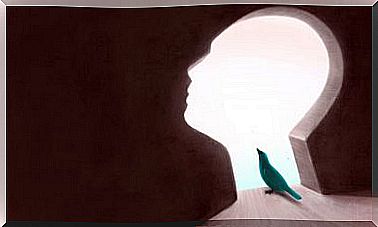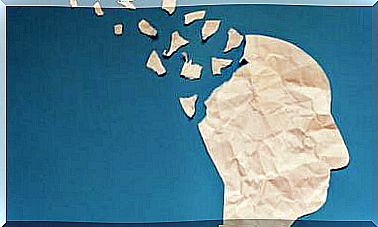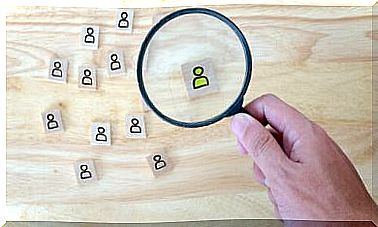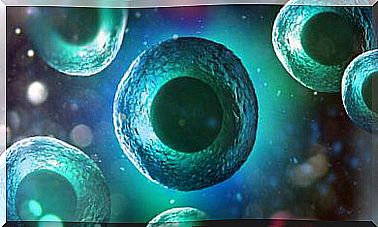Remember: People Do Things And You Decide If They Affect You Or Not

People do things that affect us, that do not always harmonize with our tastes, with our principles or values. However, only you decide to what extent they can affect you or not. Because becoming bitter about what cannot be changed is losing quality of life. At the end of the day, it is something as simple as “being and letting be”.
In quantum physics there is a concept known as “quantum entanglement” that has always troubled Albert Einstein himself and that, in some way, can be applied to human behavior.
According to this principle, when two particles come into contact with each other, they change in some way forever. Furthermore, even if they are not close to each other, what they have created together, in turn, impacts the rest of the particles.
This quantum entanglement also characterizes all of us. It is easy to understand, let’s take an example. We have a partner with a very particular hobby: sowing criticism. The bad mood that their behavior produces in us is introduced every day in our emotional backpack, to the point that this discomfort affects our relationship with our family.
We are all like chaotic particles colliding with each other and magnetizing certain emotional charges. What some do, others suffer and those who suffer start a chain of contagion of that suffering.
It is necessary to break this interconnection that decimates the quality of our relationships every day. Let us educate our mind so that it is capable of taking distance and breaking this play of forces.

There are things that no longer affect me: the principle of buoyancy
We are sure that at this point in life there will be many things that no longer affect you. You have learned that it is not good to expect so much from people, that it is better to be cautious and let your daily dealings reveal the true essence of that supposed friend.
However, and despite all your experiential baggage, you still stumble over the same stone: that of disappointment. Because in these our behavioral jungles, the well-known phrase of “being and letting be” very often becomes “I am and I will not let you be”.
How to prevent this type of attitude from affecting us?
It is not at all a question of being passive, of carrying out “non-resistance” where we gradually become the targets of all the poisoned arrows. The well-known labor analyst and writer Daniel Pink introduces us to a very interesting and useful term in this same context: buoyancy.

To understand it, it is enough to visualize a beautiful buoy suspended in the sea. This object knows very well what it is and how the ocean treats it, yet it never sinks. It is always afloat on the surface no matter the onslaught of the ocean or the storms.
This mental resistance comes from that subtle point of balance and strength where you know very well what your values are, your inner strengths and your emotional ties.
We spoke at the beginning of the principle of “quantum entanglement”. We know that we are not alone in our surroundings, in these gravitational fields where we all collide with each other in a dance that is sometimes out of tune.
In this game of forces and interactions, as Einstein himself said, we almost always take something from others. Let’s try not to get magnetized only by the negative charge, the one that in some way, we can infect our loved ones.
Let us simply let others be as they wish to be. Allow the talker to speak, the messy to lose time in their mess. Let the bitter man embitter his life and the critic poison himself with his own tongue. Let them be as they want, but when they are close to you, do not forget HOW YOU ARE.
It acts like that firm buoy in the ocean, firmly attached to its principles, to its internal strengths. Sooner or later the storm always clears. And so things affect you only if you let them.
Images courtesy Willoughby Owen, Nature PhotoSky, Paul Scott Fawler









